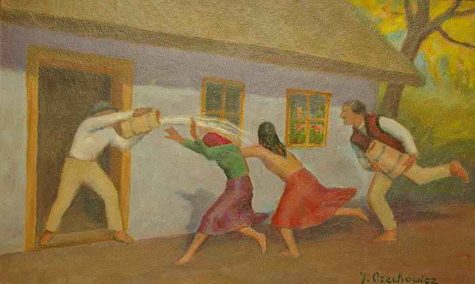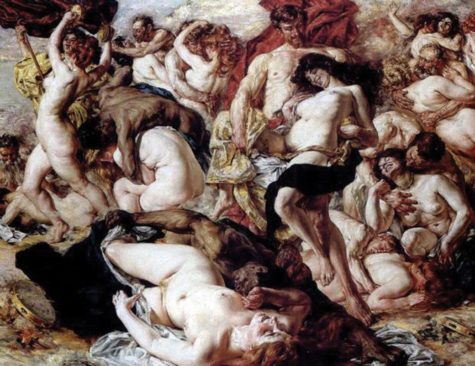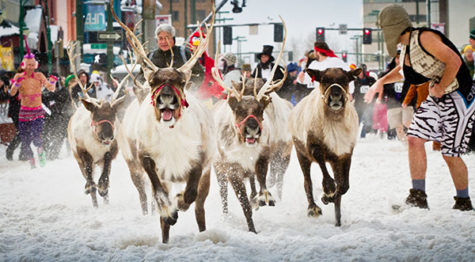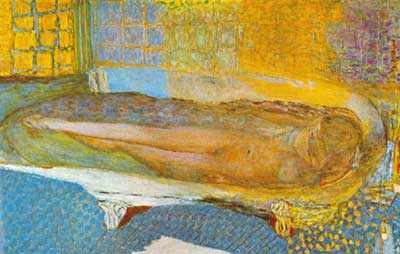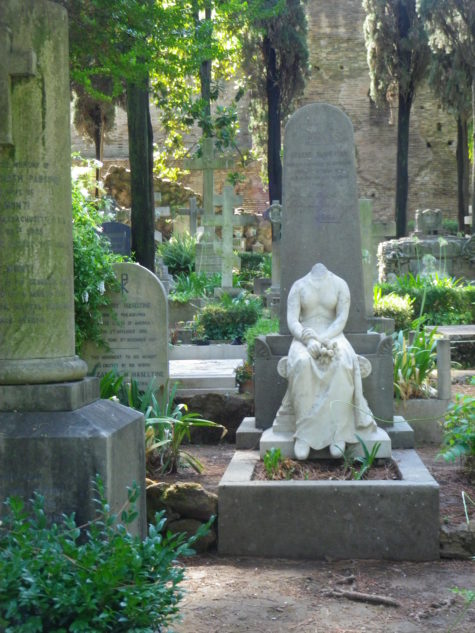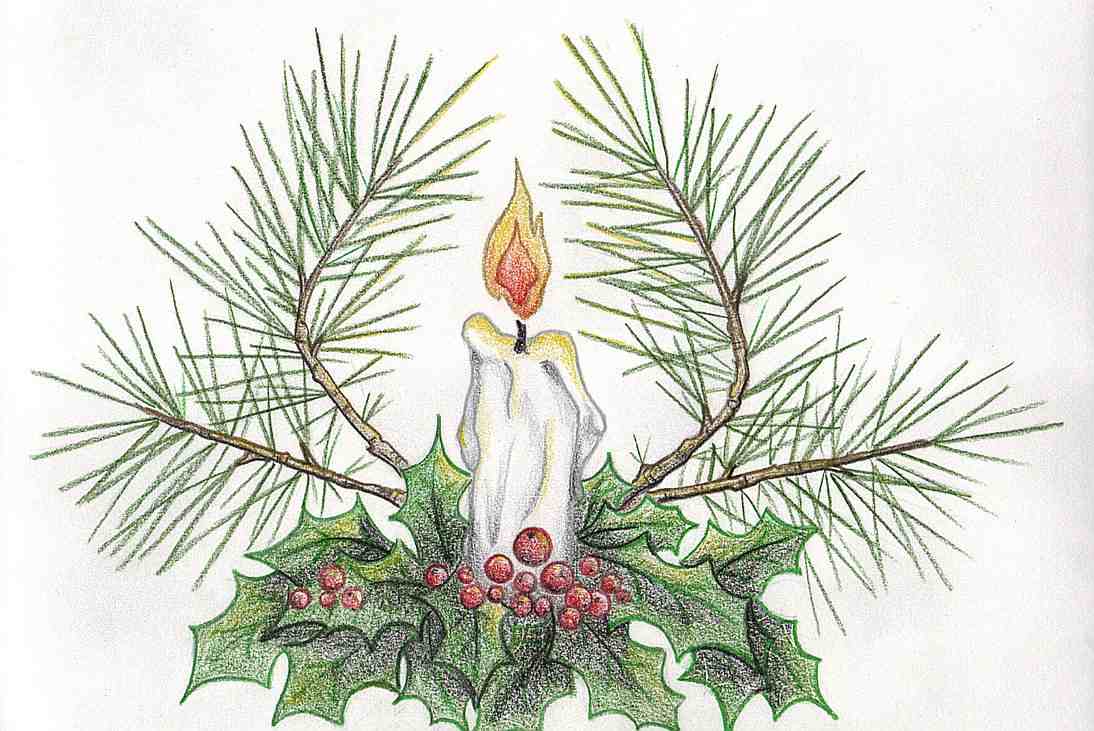The spirit of Poland’s Dyngus is captured in this description from the Poznan region during 1800s:
Poland’s Dyngus, or Smigus, Day is said to hark back to the baptism of the founder of Polish Christianity, Prince Mieszko I (c. 935 – 992), and his entire court, on Easter Monday, 966. Dyngus is an ancient celebration which is still observed both in country villages and the big cities, with singing, pranks, visiting friends’ houses, and the custom of dousing.
The custom of pouring water is an ancient spring rite of cleansing, purification, and fertility – at this time of year there are drenching customs enacted in Sri Lanka and Thailand during their respective New Year celebrations. In a Spring custom of pagan (pre-Christian Slavic) times, the Poles ‘confronted’ (dingen) Nature with their pouring of water and switching with pussy willows to purify themselves for the year ahead. The alternative name for the day comes from smiganie, meaning ‘switching’.
(Boys, don’t do this at home.) On Easter Monday, at around 5 am, the men creep through a neighbour’s window or chimney, often with the collusion of the male family head, into the rooms where the sleeping womenfolk are abruptly awakened by being doused with water. The girls, naturally enough, reciprocate in kind. In cities, where people are refined and perhaps girls more aware, this custom tends to be practised by the use of a sprinkle of water or cologne.
In the first recorded Polish writing on Dyngus Day; a medieval Polish historian wrote of what he termed the Oblewania.
Barely had the day dawned on Easter Monday when I woke the boys and gathered some water to start throwing it on the girls. Up with the Piwezyny! (eiderdown)! There was screaming, shouting, and confusion. The girls are shrieking and hollering, but in their hearts they are glad because they know that she who isn’t gotten wet will not be married that year. And the more they are annoyed, the more we dump water on them calling, Dyngus – Smigus! Then we had to change our clothes because there wasn’t a dry thread on the girls and we boys were not better off.
Source Unknown
Earth Day is a name used for two similar global observances. While some people celebrate Earth Day around the time of the Vernal Equinox, others observe the occasion on April 22 each year.
Earth Day aims to inspire awareness of and appreciation for earth’s environment. Typical ways of observing Earth Day include planting trees, picking up roadside trash, conducting various programs for recycling and conservation, using recyclable containers for snacks and lunches. Some people are encouraged to sign petitions to governments, calling for stronger or immediate action to stop global warming and to reverse environmental destruction. Television stations frequently air programs dealing with environmental issues.
Symbols used by people to describe Earth Day include: an image or drawing of planet earth; a tree, a flower or leaves depicting growth; or the recycling symbol. Colors used for Earth Day include natural colors such as green, brown or blue.
Note:
This observance arose from an interest in gathering national support for environmental issues. In 1970, San Francisco activist John McConnell and Wisconsin Senator Gaylord Nelson separately asked Americans to join in a grassroots demonstration. McConnell chose the spring equinox (March 21, 1970) and Nelson chose April 22. Millions of people participated, and today Earth Day continues to be widely celebrated with events on both dates.
The Chinese Dragon Boat Festival was held on the Full Moon in April. There was a procession of decorated boats up and down the rivers and lakes in the moonlight. Everyone participated, for they believed that this pleased the dragons who brought life-energies to the community. They would throw flowers into the water to carry their blessings and wishes.
To the Chinese, dragons were not loathsome creatures to be avoided, but rather wise, powerful beings who could help in many ways. Dragon-lovers of today realize the same thing and court their friendship. Dragons are powerful allies. This is an excellent time to bless boats, whether or not they are decorated as dragons. The ancients said that each boat had a spirit built into it, and if that spirit were dissatisfied or angry, the boat would not handle properly in the wind and waves.
If you have a boat, large or small, consider using a boat blessing ritual to improve its safety and performance. If you don’t have a boat, this ritual can also be used to bless cars, bikes, motorcycles, or whatever you use for transportation.
Note:
Dates for this festival vary widely from year to year, and from region to region. Most generally the dates given are either in May or in June.
From: Moon Magick
Nowadays, whenever we hear the term Bacchanalia getting thrown about it is typically used to describe wild partying that has gotten way out of control. In the popular imagination, the Bacchanalia are often characterized by frantic participants moshing together in a pit of sexual orgies.
The Bacchanalia were free-spirited and sexually charged festivals that involved pagan mysticism, wild sex and divine communion which allowed its celebrants’ to achieve states of euphoria that hovered between divine ecstasy and the oblivion of nothingness. Those who have spent a week at one of the Hedonism resorts in Jamaica would probably find the sexually charged atmosphere of the Bacchanalia remarkably familiar.
The cult of Bacchus was a mystery religion that originated in Asia Minor (modern day Turkey) and spread throughout Greece and into southern Italy where it became extremely popular among the Romans. Despite their notoriety, not much is known about the Bacchanalia. This is largely due to the fact that mystery religions were closed to the uninitiated and their inner-workings kept secret from the outside world. However, scholars have managed to piece together fragments from ancient legal documents, historical texts and plays that can help give us a glimpse into the bacchanalian festivities.
The Bacchanalia first appeared in Greece around 700 BC and eventually found their way into Italy around the fourth century BC. The first bacchanals were held twice yearly in the middle of winter and were reserved for girls and women who performed their rites naked. By the time Rome had become the preeminent power in the Mediterranean after their victory over Carthage in the Second Punic War (202 BC), the rituals had opened up considerably making them quite popular with the natives.
Admission was extended to men and people of all social classes; even slaves could even join in on the fun. With the increased popularity, celebrations were taking place as often as five times a month.
The time and location of the bacchanals were usually closely guarded secrets. Priests and priestesses preferred to hold their gatherings in secluded forests where their privacy could be ensured. On the day of the festival, devotees would prepare some goats by painting their horns gold. Special torches dipped in sulphur and charcoal was also made. Devotees often wore fawn skins that emulated forest animals. Skimpy outfits or even complete nudity was also par for the course. Participants would often carry along their favorite sex toy; women would bring sexy wands while men might bring along a wooden phallus.
After nightfall celebrants would proceed to a forest clearing by dancing to the sounds of crashing cymbals and loud music. Once the celebrants arrived at the appointed place, they could be seen quaffing down wine, dancing, leaping, whirling, screaming and generally working themselves up into a frenzied state. They would inspire each other into ever greater acts of ecstasy, whereby the whole scene would descend into a writhing mosh pit of sexual orgies.
The aim was to achieve a heightened state of ecstasy in which the devotee’s souls would be temporarily freed from their physical existence. It was in these moments that the worshipers hoped to commune with Bacchus and obtain a glimpse of what they would someday meet in the afterlife after their resurrection.
The festival would reach its climax with frantic feats of strength and ecstasy, such as ripping trees out of the ground and eating the raw flesh of their sacrificial animals. The latter act was a sacrament similar to communion where the devotees assumed the identity of Bacchus. By symbolically drinking his blood and eating his body, the devotees believed they became one with Bacchus.
The euphoric devotees would then rush over to the banks of a nearby river with their flaming torches and dip them into the water. Since their torches were made with sulfur and charcoal, they would emerge from the water still burning, a symbol of Bacchus’s power.
Source: The Bacchanalian
According to some pagan calendars, March 8 is designated as the Chinese Birthday of Mother Earth. A Chinese holy day, dedicated to Mother Earth. Here’s a cool meditation I found for today, and for any day when you want to establish a closer connection to the Earth Mother.
BE ONE WITH THE MOTHER
The Real Challenge for Humans at This Time is to be one with the Mother. There are so many Considerations for This, It Bears Deep Reflection. To Which Mother Are We Referring? As well as the Divine Mother, We Mean The Earth Mother. Your Physical Body Form Comes Directly From the Earth Mother Herself. It IS Her Body. All the carbon, nitrogen, oxygen, hydrogen and trace minerals and metals Are Her Bodily Constituents.
She Envelops You While Your Soul Resides in This or Any Physical Form. In This Way You Are Always One With the Mother, Whether You Feel and Know It or not. Why not Feel, Sense, Be the Oneness with The Earth Mother’s Body and Energies?
You Can Feel the Oneness With the Earth Mother In Many Ways.
Let Her Spine (North Pole-Crown to South Pole-Root) BE INSIDE Your Spine. Let Her Elements Be Your Elements and make-up.
Become All the FIVE ELEMENTS.
FEEL All the Element EARTH, with All the Continents, Rock Shelves, Ocean Beds, Topsoil INSIDE Your Physical Body.
BE the Element FIRE by FEELING the Flow of Hot Lava Inside Your Spine, Your Stomach, Digestive Systems and Internal Organs Especially Liver, Kidneys, Gall Bladder, Spleen. Feel the Golden, Spiritual Lava flowing through Your Heart Out to the Universe.
BE the Element WATER, so that All the Oceans, Lakes and Rivers of the World are Flowing in Your Arteries, Veins, Blood and Energy Meridians. Feel The Fullness of the Tides Moving You.
BE the Element AIR, currents of Hot, Warm, Cool or Cold Air Movements Inside the Lungs and the Energy Meridians Throughout Your Body, as well as on Your Skin.
Be the Element ETHER whereby the Magneto-Electrical Energy Lines and Grid Patterns of Mother Earth Flow Constantly From Crown of Head to Fingers to Toes. This Consistently Heals, Cleanses, Purifies, Re-Orients, Revisions and Intergalactically Expands You As You Take In Cosmic Rays From Source and Important Stars, Galaxies and Nebulae Around the Universes.
Only When You Have Completed the Moment-to-Moment FULLEST Experience of Being One With the Earth Mother will You Feel Safe In Being the Love You Are While In the Physical Form.
Welcome Home!
Found in: Babaji – Mantras Chants Meditations and Messages
Different countries and cultural traditions have different names for this day. Popular names include Pancake Day or Pancake Tuesday, Mardi Gras, Tłusty Czwartek, Fasnacht Day, Tuesday of Carnival, Fat Tuesday, and Shrove Tuesday. Shrove Tuesday is the last day of Shrovetide.
Pancake Tuesday always falls 47 days before Easter Sunday, so the date varies from year to year and falls between February 3 and March 9. In 2019 Pancake Tuesday will fall on March 5th.
During Lent, which begins the next day (Ash Wednesday), rich foods are not eaten; therefore the day before pancakes, donuts and other treats are cooked to use up the ingredients in the house. Pancake Tuesday was the last opportunity to use up eggs and fats before embarking on the Lenten fast and pancakes are the perfect way of using up these ingredients.
Pancakes are eaten with a sprinkling of sugar, and they are served with syrup. The day celebrated by excessive pancake devouring is observed in the United Kingdom, Ireland, Australia, Canada, Denmark, France, Poland, Sweden, and in parts of the United States.
Today just might be the perfect day to take a look at the following posts about pancakes:
What are pancakes?
A pancake is a thin, flat cake, made of batter and fried in a frying pan. A traditional English pancake is very thin and is served immediately. Golden syrup or lemon juice and caster sugar are the usual toppings for pancakes.
The pancake has a very long history and featured in cookery books as far back as 1439. The tradition of tossing or flipping them is almost as old: “
And every man and maide doe take their turne,
And tosse their Pancakes up for feare they burne.”
~Pasquil’s Palin, 1619.
The ingredients for pancakes can be seen to symbolize four points of significance at this time of year:
- Eggs ~ Creation
- Flour ~ The staff of life
- Salt ~ Wholesomeness
- Milk ~ Purity
To make 8 or so pancakes you will need the following:
- 8oz plain flour,
- 2 large eggs,
- 1 pint milk,
- salt.
Mix all together and whisk well. Leave to stand for 30 minutes. Heat a little oil in a frying pan, pour in enough batter to cover the base of the pan and let it cook until the base of the pancake has browned. Then shake the pan to loosen the pancake and flip the pancake over to brown the other side.
Pancake Races
In the UK, pancake races form an important part of the Shrove Tuesday celebrations – an opportunity for large numbers of people, often in fancy dress, to race down streets tossing pancakes. The object of the race is to get to the finishing line first, carrying a frying pan with a cooked pancake in it and flipping the pancake as you run.
The most famous pancake race takes place at Olney in Buckinghamshire. According to tradition, in 1445 a woman of Olney heard the shriving bell while she was making pancakes and ran to the church in her apron, still clutching her frying pan. The Olney pancake race is now world famous. Competitors have to be local housewives and they must wear an apron and a hat or scarf.
Each contestant has a frying pan containing a hot pancake. She must toss it three times during the race. The first woman to complete the course and arrive at the church, serve her pancake to the bellringer and be kissed by him, is the winner.
At Westminster School in London, the annual Pancake Grease is held. A verger from Westminster Abbey leads a procession of boys into the playground where the school cook tosses a huge pancake over a five-metre high bar. The boys then race to grab a portion of the pancake and the one who ends up with the largest piece receives a cash bonus from the Dean.
Source: Historic UK
In Alaska’s wackiest race, racers have their choice of four different “herds” in a mad dash down the streets of Anchorage in an effort to outrun reindeer. The dates vary, in 2019, the race occurs on March 2. It looks pretty crazy! Here are some more pics:
2019 marks the 12th year for this internationally acclaimed event, which raises funds for Toys for Tots. Join the world and Alaska by running or watching this favorite Rondy event.
According to various sources, February 26 is Hygeia’s Day. I did not, however, find any specific rituals associated with the Goddess Hygeia. However, because bathing is so fundamental to basic hygeine, and Hygeia is the goddess of Healing and Hygeine, a healing ritual bath seems appropriate.
Healing Ritual Bath
Take a lit silver or white candle, some salt, and a healing oil (such as carnation, violet, sandalwood, or narcissus) into the bathroom. By the candle’s light run a tub of very warm water. Cast some salt into it, add a few drops of healing oil, and then step into the tub.
Relax. Feel the warm salted water sinking into your pores, through your skin, sterilizing the sick or unhappy portions of your body.
Visualize any illness or bad feelings as “black worms” leaving your body. When you feel the water teeming with them, pull the plug and let the water drain out. While it is draining, chant:
The sickness is flowing out of me.
Into the water, down to the sea.
Only when the tub is completely drained stand up. It is best to immediately splash your body with fresh water (a shower is ideal) to remove the last vestiges of the disease of sickness-laden water. Repeat as needed to speed your body’s recovery.
From: Earth Power
Termini in Roman mythology began as boundary markers between wilderness settings. The termini were rural boundary stones marking property lines between fields and neighbors. There was an annual ceremony each 23rd day of February called the Terminalia when first fruits were offered and libations of oil and honey were poured over the termini to renew the power or forces within the boundary stones between properties. Ovid presents the story as follows
When night has passed, let the god be celebrated
With customary honour, who separates the fields with his sign.
Terminus, whether a stone or a stump buried in the earth,
You have been a god since ancient times.
You are crowned from either side by two landowners,
Who bring two garlands and two cakes in offering.
An altar’s made: here the farmer’s wife herself
Brings coals from the warm hearth on a broken pot.
The old man cuts wood and piles the logs with skill,
And works at setting branches in the solid earth.
Then he nurses the first flames with dry bark,
While a boy stands by and holds the wide basket.
When he’s thrown grain three times into the fire
The little daughter offers the sliced honeycombs.
Others carry wine: part of each is offered to the flames:
The crowd, dressed in white, watch silently.
Terminus, at the boundary, is sprinkled with lamb’s blood,
And doesn’t grumble when a sucking pig is granted him.
Neighbours gather sincerely, and hold a feast,
And sing your praises, sacred Terminus:
‘You set bounds to peoples, cities, great kingdoms:
Without you every field would be disputed…
These rural termini and feast of landmarks had their state counterpart in Terminus. The story told by Ovid about the sacred boundary stone which stood, in the temple of the Capitoline Jupiter, continues:
What happened when the new Capitol was built?
The whole throng of gods yielded to Jupiter and made room:
But as the ancients tell, Terminus remained in the shrine
Where he was found, and shares the temple with great Jupiter.
Even now there’s a small hole in the temple roof,
So he can see nothing above him but stars.
Since then, Terminus, you’ve not been free to wander:
Stay there, in the place where you’ve been put,
And yield not an inch to your neighbour’s prayers …
~Ovid, Fasti Vol II
A Simple Terminalia Celebration
- Themes: Earth; Home
- Symbols: Owl; Geranium
- Presiding Goddess: Minerva
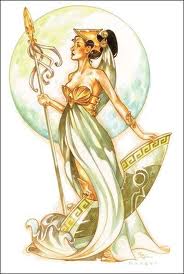 About Minerva:
About Minerva:
This Etruscan/Italic goddess blended the odd attributes of being a patroness of household tasks, including arts and crafts, and also being the patroness of protection and war. Today she joins in pre-spring festivities by helping people prepare their lands for sowing and embracing the figurative lands of our hearts, homes, and spirits with her positive energy.
To Do Today:
In ancient times, this was a day to bless one’s lands and borders. Gifts of corn, honey, and wine were given to the earth and its spirits to keep the property safe and fertile throughout the year. In modern times, this equates to a Minerva-centered house blessing.
Begin by putting on some spiritually uplifting music. Burn geranium-scented incense if possible; otherwise, any pantry spice will do. Take this into every room of your home, always moving clockwise to promote positive growing energy. As you get to each room, repeat this incantation:
Minerva, protect this sacred space
and all who live within.
by your power and my will,
the magic now begins!
Wear a geranium today to commemorate Minerva and welcome her energy into your life.
Sources:
The Feralia was the closing festival of the ancient Roman festival of Parentalia. During the Feralia, families would picnic at the tombs of their deceased family members and give libations to the dearly departed. It was believed that the shades of the dead could walk upon the earth above their graves during Feralia.
Roman citizens were instructed to bring offerings to the tombs of their dead ancestors which consisted of at least “an arrangement of wreaths, a sprinkling of grain and a bit of salt, bread soaked in wine and violets scattered about.” Additional offerings were permitted, however the dead were appeased with just the aforementioned.
Ovid tells of a time when Romans, in the midst of war, neglected Feralia, which prompted the spirits of the departed to rise from their graves in anger, howling and roaming the streets. After this event, tribute to the tombs were then made and the ghastly hauntings ceased.
“And the grave must be honoured. Appease your fathers’ Spirits, and bring little gifts to the tombs you built. Their shades ask little, piety they prefer to costly offerings: no greedy deities haunt the Stygian depths. A tile wreathed round with garlands offered is enough, A scattering of meal, and a few grains of salt, and bread soaked in wine, and loose violets: Set them on a brick left in the middle of the path…
…and hide the gods, closing those revealing temple doors, Let the altars be free of incense, the hearths without fire. Now ghostly spirits and the entombed dead wander, Now the shadow feeds on the nourishment that’s offered. But it only lasts till there are no more days in the month Than the feet that my metres possess. This day they call the Feralia because they bear [ferunt] Offerings to the dead: the last day to propitiate the shades.” – Ovid
To indicate public mourning, marriages of any kind were prohibited on the Feralia, and Ovid urged mothers, brides, and widows to refrain from lighting their wedding torches. Magistrates stopped wearing their insignia and any worship of the gods was prohibited as it “should be hidden behind closed temple doors; no incense on the altar, no fire on the hearth.”
